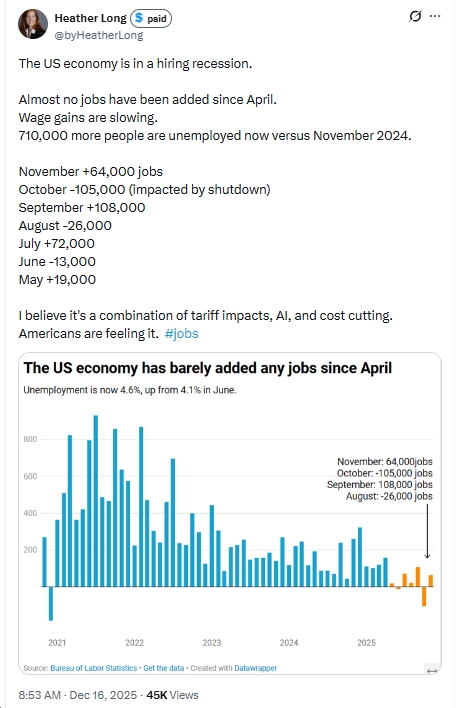( – promoted by KathyinBlacksburg)
(Note: This is a cross-post by me from BlueNC.com)
 So much has been said about the national debt in recent years, especially during the current presidential campaign. With persistent misrepresentation, the Romney campaign likes to assign responsibility for the debt to the Obama administration. And most of the broadcast media-the single-most failed institution in America along with its greedy and reckless financial system-says little to clarify matters, help citizens sort out the facts, and hold the Romney campaign to account.
So much has been said about the national debt in recent years, especially during the current presidential campaign. With persistent misrepresentation, the Romney campaign likes to assign responsibility for the debt to the Obama administration. And most of the broadcast media-the single-most failed institution in America along with its greedy and reckless financial system-says little to clarify matters, help citizens sort out the facts, and hold the Romney campaign to account.
If responsibility is to be assigned for the national debt, there is a dishonest method and an honest method of doing so. This is the message from Barry Ritholtz writing for Economonitor–an economics project of Nouriel Roubini, one of the few economists along with Ritholtz to predict the sub-prime mortgage and derivative investment crises. Ritholtz published in 2009-10 Bailout Nation, which won the First Amendment Award for Outstanding Journalism, and he authors the highly acclaimed Big Picture-a leading financial weblog.
As Ritholtz points out, the dishonest method of calculating presidential responsibility for the national debt involves mistaking a president’s calendar years in office, which run from late January of the first year to early January of the four-year term, for the federal government’s fiscal years, which run annually from October 1 to September 30. The only honest way to calculate each president’s contribution to the national debt is by examining the budgets he (or hopefully someday she) presents to Congress, which may change a budget but which rarely appropriates more than a president requests.
For example, although George W. Bush was first sworn into office on January 20, 2001, the budget for most of the rest of that year was Bill Clinton’s, passed by the prior Congress. Similarly, although Barack Obama was sworn in on January 20, 2009, the budget for most of that year was George W. Bush’s. Thus, Bush II’s first budget did not go into effect until October 1, 2001; and Obama’s first budget did not go into effect until October 1, 2009.
As Ritholtz points out further, when the data are examined in terms of the fiscal years and actual budgets of presidents, the factual results of calculating and differentiating Bush II’s and Obama’s contributions to the national debt are the following:
• 10/1/2001-the deficit at the start of Bush’s first budget was $5.8 trillion.
• 9/30/2009-the deficit at the end of Bush’s last budget was $11.9 trillion.
• Bush’s contribution to the national debt was $6.1 trillion.
• 10/1/2009-the deficit at the start of Obama’s first budget was $11.9 trillion.
• 9/30/2011-the deficit at the end of Obama’s subsequent budget was $14.8 trillion.
• Obama’s contribution to the national debt as of 9/30/2011 was $2.9 trillion.
• As percentages of the $14.8 trillion debt on September 30, 2011, Bush II’s budgets constituted 41.2% whereas Obama constituted 19.6%.
Granted, President Bush inherited the dot.com mess and the conditions for a small recession that began a month after he took office. But he also inherited a surplus, which his policies deliberately sought to undo. In sharp contrast, Obama inherited the worst economic crisis since the Great Depression of the 1930s. By every measure, his policies brought our country out of a deep recession, created over five million jobs, passed healthcare and financial reform, advanced the rights of women, ended one war, and is extricating the U.S. from another. Pretty darn good in the face of complete opposition from the GOP, whose leader in the Senate (Mitch McConnell) set as his party’s primary goal not to grow jobs or the economy but instead to make Obama “a one-term president.”
As for the problem of indebtedness, Mitt Romney’s many years of practice at Bain Capital indebting companies, often to the point of bankruptcy, do not inspire confidence. Neither his nor Obama’s nor anyone else’s policies will solve the problem any time soon. But for sure, the solution will necessitate a balanced approach of cutting federal spending and raising taxes on those who have benefitted most from the excessive and reckless financialization of our economy.



![Thursday News: “Europe draws red line on Greenland after a year of trying to pacify Trump”; “ICE Agent Kills Woman, DHS Tells Obvious, Insane Lies About It”; “Trump’s DOJ sued Virginia. Our attorney general surrendered”; “Political domino effect hits Alexandria as Sen. Ebbin [to resign] to join Spanberger administration”](https://bluevirginia.us/wp-content/uploads/2026/01/montage010826.jpg)


![Wednesday News: “The Grand Opening of an American Concentration Camp”; Trump Threatens to Arrest Mamdani; “Poorest Americans Would Be Hurt By Trump’s Big Bill”; [VA] GOP nominees share stage, but not unity”; “Hoos your daddy, Virginia?” (Not Youngkin)](https://bluevirginia.us/wp-content/uploads/2025/07/montage0702.jpg)











